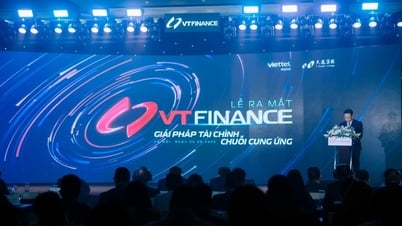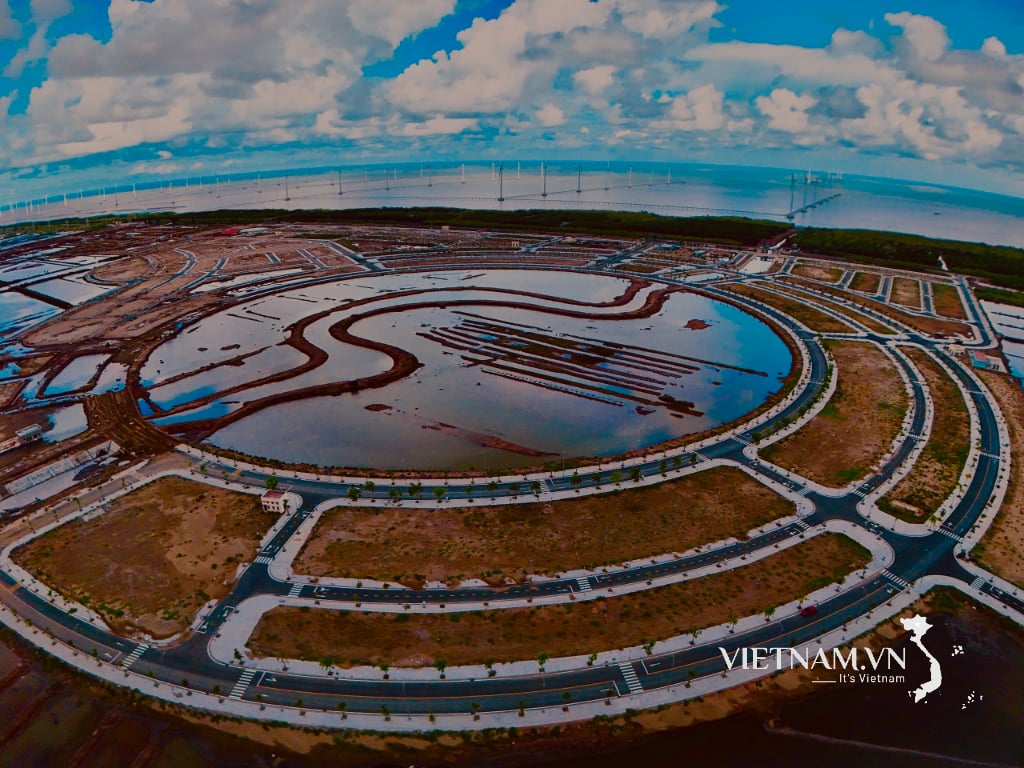
A sign announcing VAT for dine-in customers at a restaurant in Ho Chi Minh City - Photo: NB
From June 1, about 37,000 households and individuals with annual revenue of VND1 billion or more must use electronic invoices generated from cash registers, directly connected to tax authorities. Households with lower revenue are exempted from the application, but are still encouraged to proactively switch to gradually get used to the new management requirements.
According to Circular 40/2021, business households and individuals with revenue from production and business activities in the calendar year of VND 100 million or less do not have to pay value added tax (VAT) and personal income tax (PIT). In case of revenue of over VND 100 million per year, they will have to pay three types of taxes and fees including business license fee, VAT and PIT.
Changes have been made
Some shops and restaurants have started to inform customers that VAT will be added to all their bills. This is different from before, when restaurants only issued VAT invoices when customers paid for services that required a "red invoice".
Or for businesses that do not meet full accounting conditions and do not register for the deduction tax calculation method, the selling price already includes tax and is not allowed to separate VAT from the selling price.
However, from June 1, all households and individuals doing business with revenue of 1 billion VND/year or more that sell goods and provide services directly to consumers can choose to switch to using electronic invoices generated from cash registers, directly connecting data with tax authorities.
According to Tuoi Tre Online, on the first day the new policy was applied, there were businesses that invested in equipment and software systems to issue electronic invoices generated from cash registers, connect directly with tax authorities as well as calculate VAT on sales invoices.
In addition, there are still businesses that hesitate due to lack of guidance and concerns about costly software and equipment investment; at the same time, there is the problem of calculating VAT on sales invoices, which can affect competitiveness.
Ms. Minh Lan, owner of a restaurant in Thu Duc City, said she had heard about this regulation but had not been able to implement it, partly because she was busy (having many jobs - PV) and partly because she wanted to wait for further instructions from local tax officials.
"I'm also worried, now the input price is too high even though we have invoices but VAT has never been included" - Ms. Minh Lan shared.
"When going to the market, few people care about invoices or VAT."
Sharing with Tuoi Tre Online on the sidelines of the "Cashless Day" press conference in 2025 organized by Tuoi Tre newspaper on the afternoon of June 2, Mr. Pham Anh Tuan - Director of the Payment Department, State Bank - said that recently, a number of kiosks in many markets have closed down simultaneously because sellers have had difficulty declaring taxes, partly due to the problem of input origin.
The new regulations could force sellers to raise prices or cut profits, creating a new equation.
"When shopping at the market, few people care about invoices or VAT, so it can lead to prices being a little cheaper (compared to supermarkets - PV). Now that we have to pay taxes in a different way than before, we will have to push up prices. That is the problem we have to face" - Mr. Pham Anh Tuan shared.
Many businesses also said that the cost of compliance to meet the new regulations can range from several million to tens of millions of VND per year. Therefore, these businesses want a transition period with specific support policies such as free software or tax reduction in the beginning.
According to the Tax Department, the removal of lump-sum tax and the change to self-declaration and tax payment based on actual revenue will help accurately reflect business capacity and ensure the principle in the Tax Administration Law that "taxpayers self-declare, self-pay, and self-responsibility".
Resolution No. 68-NQ/TW on private economic development emphasizes substantial and effective support for small, micro-enterprises and business households.
Accordingly, the State will review and perfect the legal framework for individual businesses, narrowing the gaps in management organization, financial and accounting regimes to create favorable conditions to encourage business households to convert to enterprise models.
At the same time, promote digitalization, transparency, and simplification of procedures related to accounting, tax, insurance, etc. in a way that is easy to comply with and implement. An important goal is to completely eliminate lump-sum tax for business households by 2026 at the latest.
In addition, providing free digital platforms, shared accounting software, legal consulting services, along with training programs on business administration, accounting, tax, human resources and law for small and micro enterprises, business households and individual businesses.
Source: https://tuoitre.vn/nhieu-ho-kinh-doanh-bat-dau-thong-bao-tinh-vat-vao-hoa-don-cua-khach-20250602225635534.htm





























































































Comment (0)